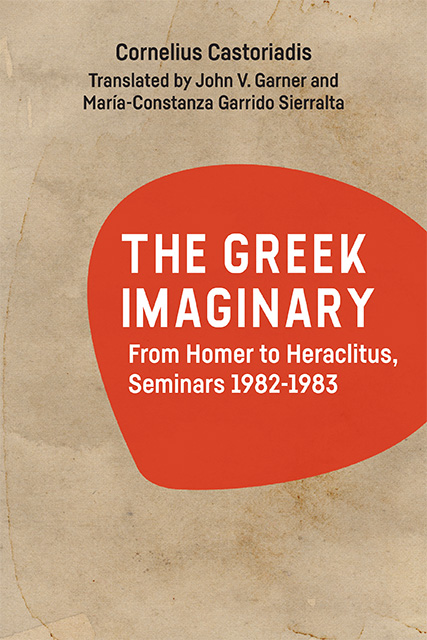III - Seminar from November 24, 1982
Published online by Cambridge University Press: 20 October 2023
Summary
We will approach Homer today. We will have to go back and forth over things, sometimes making amplifications, which won’t occur without repetition, and I request in advance that you excuse me. A preliminary methodological remark. You know this. It’s a banality: The bibliography is immense; it has accumulated for two thousand years and continues to proliferate. Finley, in the preface to the latest edition of The World of Odysseus, observes that in twenty years the “swell of publications” in Homeric research has practically surpassed his capacities for reading. He nevertheless believes he’s read what’s essential. I believe, I know, that I am far from having read not just “what’s essential” but even just a good portion of the texts. Moreover, we’re going to tackle a whole series of additional problems that are tied to the collectivity of discourse on Greece. I already mentioned one of them that’s fundamental, i.e. the reinterpretation and, in the end, imposition of significations. It’s an imposition that has nearly always been non-conscious, except perhaps in recent years and certainly in what we are trying to do here since we are starting out precisely from this idea of a reinterpretation, and we know that we are trying to re-create something. Within every era, of course, different ideological currents also coexist. If you read a certain set of recent literature on ancient Greece, you will behold, for example, that the constitution of the polis and of democracy comes down to an attempt to establish a bürgerliche Gegenwart, a “bourgeois” or “civic” presence. We have here, in fact, a particularly subtle form of Marxism that I would call Lukácsian-Heideggerian. As for the other forms, the majority of Marxists will tell you that everything is explained by slavery. Let’s not forget the professions, the philologists for example, without whom we couldn’t say anything, but who sometimes say absolutely abominable things. There are also these surprising quarrels between archaeologists, philologists, historians, and sociologists.
- Type
- Chapter
- Information
- The Greek ImaginaryFrom Homer to Heraclitus, Seminars 1982-1983, pp. 35 - 54Publisher: Edinburgh University PressPrint publication year: 2023

